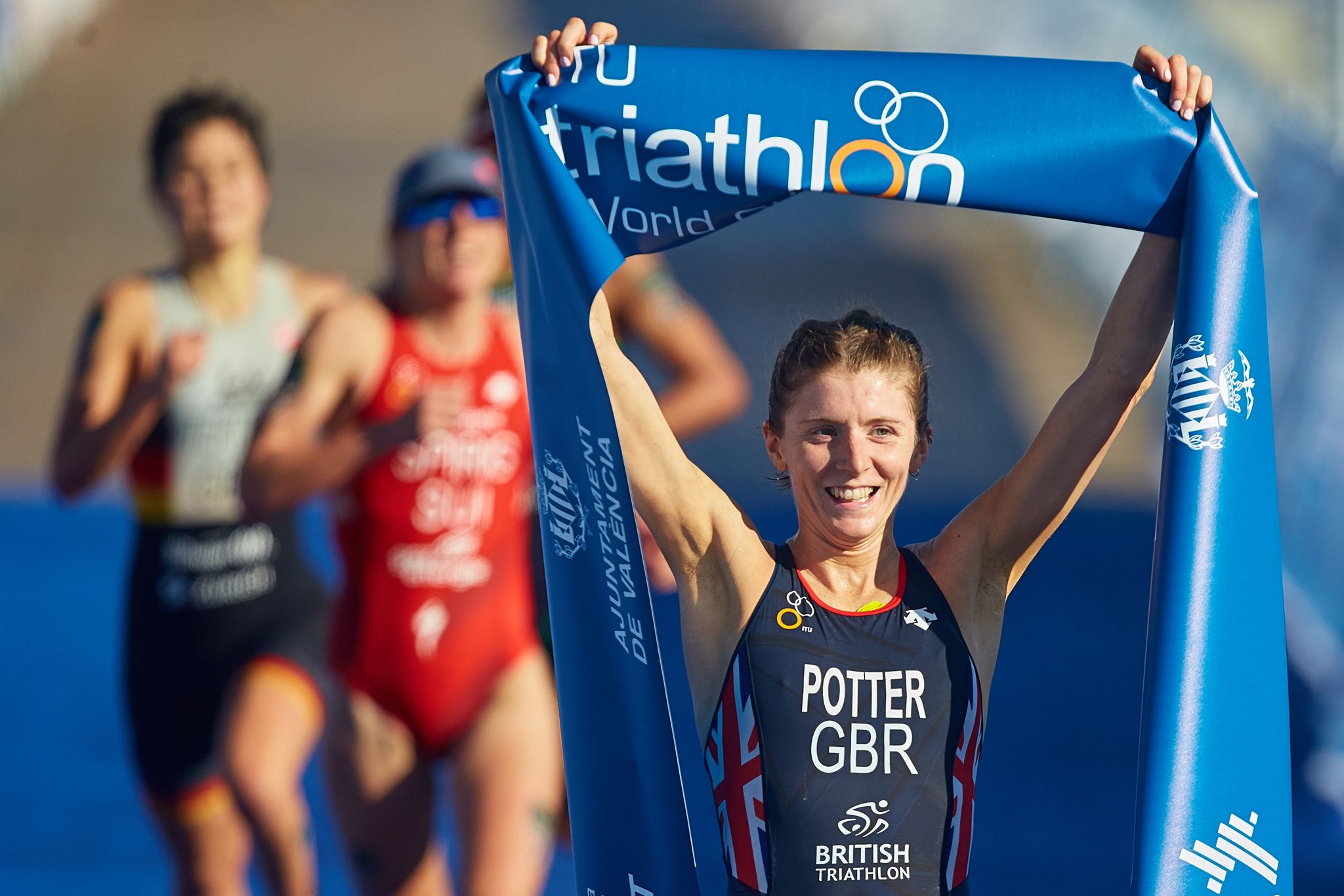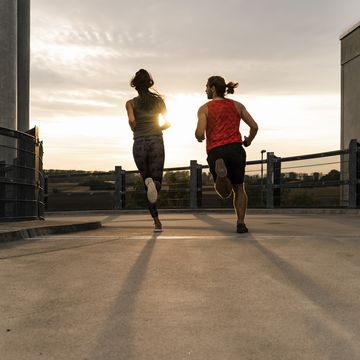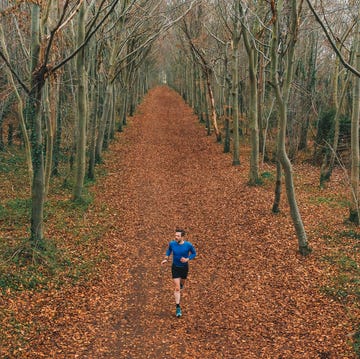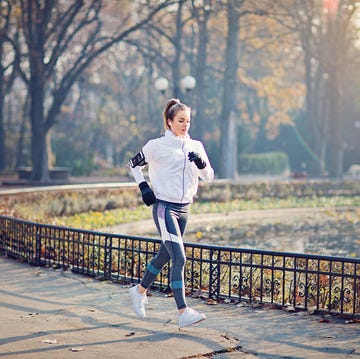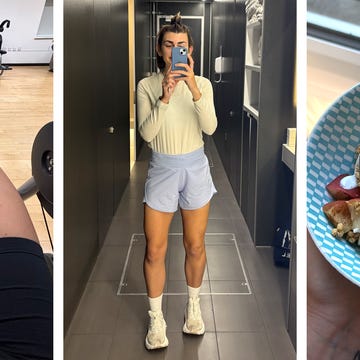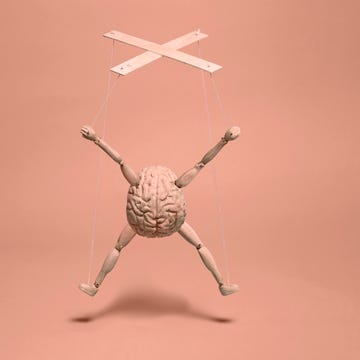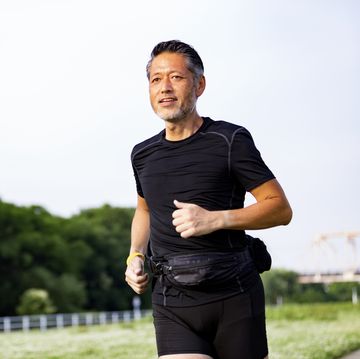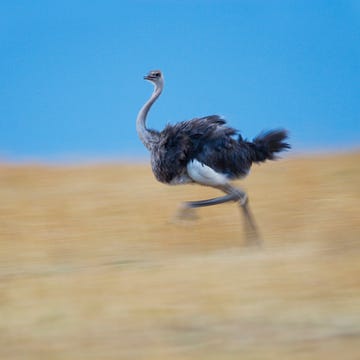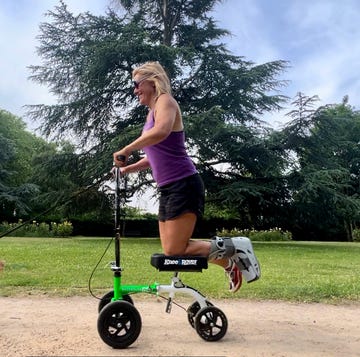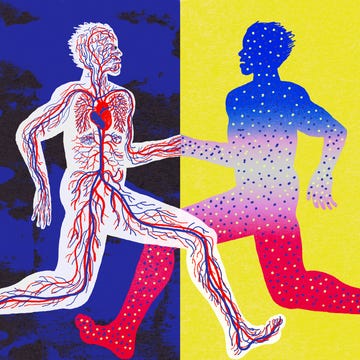We talk to Beth Potter, the British triathlete who recently hit the headlines with an incredible performance at the Podium 5k, a few days after she crossed the line in a time of 14:41. In the days since her race, she's had time to celebrate and digest her amazing success, but also to witness the questioning of her time and footwear choices on social media.
Here, Beth talks about those shoes, her training and what's next on her bucket list.
For anyone who’s not familiar with your running background and all your achievements, could you give us a brief summary of your career so far?
I started out in track and field and did that up until 2016. I’ve competed at Commonwealth Games, European Championships, World Championships and Olympic Games. It was really after a disappointing race at the Olympics in 2016 that I decided to move away from track and field and try something completely different. I had always been interested in triathlon, so I decided to see how it would go. It was very much diving into the unknown and just giving it a shot.
So it was running first for you and then you’ve moved into the multi-discipline event after that?
I actually started off as a swimmer. I did a lot of swimming when I was younger and supplemented that with two runs a week, one on the track and one that was just an easy run. I very quickly got success on the track and as that progressed up to under-23 and then senior level, the swimming just came out. By the time I went to university as a 17-year-old, I wasn’t really swimming much at all, mainly doing running in the week. I fell into running through swimming.
Can we talk about the Podium 5K and that incredible photo of you as you cross the line and realise what you've achieved - how did that feel?
My first initial reaction across the line was, ‘Have you calibrated that clock correctly? Is that for real?’ I knew the times he was reading out and I thought, ‘He must be standing on the wrong split markers. There’s no way… I’ve just run an 8:44, that’s a 3k PB, and it felt quite comfortable! This is odd, he’s definitely started us off at the wrong place or something.’ Also, I had in my head I’d raced Super League Triathlon the week before and I really pushed on training that week. I’d only decided last minute that I was going to do this and I wanted to keep my base fitness there with my eyes on the rest of the season with the world triathlon series. So I went into the race off the back of a big week, so I honestly would have been happy running 15:15. I thought, ‘This would be really fun if I can get a PB on the road and the track.' To run that time was like, ‘Wow. What has happened?’ It was like an out-of-body experience. The last couple of nights lying in bed it’s felt mad.
A lot of top athletes don’t race with watches – were you wearing one?
I’ve had this question a lot this week. I actually don’t know where my Garmin is – genuinely. It’s in a training bag somewhere. I don’t know where it is, I haven’t used it for about a month now. It is missing. I usually warm up to music on my watch, so I had to take my phone on my warmup – I usually get to four or five songs on one of my Taylor Swift albums and I'm done. My coach was like, ‘Take my watch. Take my watch.’ So I had his watch, but I still warmed up as normal and listened to my four or five songs. Then I remember he was standing at the fence and taking my kit before I went to the start line, and was like, ‘Keep the watch.’ I said, 'No, no, no, I’m not keeping the watch, I don’t like to race with a watch on.' I like just to forget about it and just go. For example, if I’d worn a watch on that first kilometre, I probably would have held back, and then I would have been running in no man’s land. Whereas what actually happened was, ‘Yeah, I know this is fast, I’m running 2:50min/km pace right now, but if I don’t go with it I’m gonna have no one to run with.' I didn’t want to be so strict with the times that I had to hit – it’s a race, you just have to go with it. So I’m very much all in, just go as hard as you can.
Do you ever train with a watch?
I mean, for the past few weeks I haven’t had a watch so I’ve gone to training and I’ve just had to run. There’s lots of things I’m not good at, but one thing I am good at is dialling into a pace and just sticking there. So I find it good practice to go to training and just go to the track and dial in that first lap and settle into a rhythm. I think it’s quite a useful tool, especially in triathlon when you don’t always have markers. I’ll have days where I go to the track, or to the canal, to do my session and I don’t feel good – I don’t want to be looking at a watch that tells me I’m running at a certain pace which is way off, because then I get anxiety about it. I’d rather just do the session.
Have you been disappointed by the reaction of some people who are claiming the time was all down to the shoes you were wearing?
I’ve actually tried to stay off Twitter as much as possible but I’ve had a couple of friends message me saying, ‘I hope you’re not taking what they’re saying to heart.’ Every athlete has now got access to a similar shoe and at the end of the day, you have to do the training. None of the people commenting have seen me train and I train really hard, I probably train too hard sometimes, and that’s my downfall. You don’t get anywhere without hard work and I’m proud of the fact that I train hard, I like it. I’ll always aspire to be like all my training partners - I look up to them, because they train really hard and I think that’s really admirable. So I hope people know that and know that’s what I’m like.
The reaction about shoes doesn't seem to very consistent. If you look at the British Marathon Trial and Chris Thompson – such a popular winner, and rightly so – who ran a PB at aged 39 and was wearing the Nike shoes. I don’t think that many people talked about that time being diminished in some ways, it was just a great story...
To be fair, I think 99 per cent of people on Twitter have fought my own battle for me. They don’t even know me but they’re saying that it’s awesome and it’s inspirational. You do get the occasional person that thinks you’re doping or the course was short, or something like that. But they don’t know me so I don’t really care. I’d be more upset if it was people I’d trained with or my coaches that didn’t believe me, but they do.
Without wanting to make this all about the shoes, what were the Asics Metaspeed like to run in?
So I did a lot of training in the Asics Metaracer, and then I was recently sent the previous model of the Metaspeed, which is basically the same as the current version, apart from it’s a different colour and a different material on the top – everything else about it was exactly the same. I have been training in that for maybe eight weeks now and I really liked it. I preferred it much more to the Metaracer because of stack height and just the response I got from it in training. I’ve found that after training my legs recover quicker, so I can get back to training hard that week and not have a big easy block and then enter hard training again. It is a great shoe. Really good.
What advice would you give to anyone who’s looking to run their best 5k? Is there a session or type of training that’s worked for you and you think would work with others?
I’m not gonna lie, I think cross training works. You don’t need to run loads, you need to just be able to run as far as the distance. If you do struggle with injury, which a lot of runners do, you can supplement your running with biking or swimming. Going back to when I was at school, I did a lot of swimming, about eight sessions a week and only a little bit of running. The whole time throughout university I couldn’t beat times I was running when I was a 16-year-old schoolgirl, and I just couldn’t understand it. It’s just something you can’t replace with running, because you can’t go out for a two-and-a-half-hour run four days a week because you’d be injured and your legs would be trashed. It’s low-impact and you can do it for a longer period of time while your heartrate’s quite low, so it doesn’t take as much out of yourself physically.
Finally, what's next for you?
I don’t know, I still haven’t digested it all. Obviously my main aim was to compete at the Olympics and I was going for triathlon. Unfortunately, that option is unavailable to me at the moment, so it’s a tricky one because I’m just trying to stay in the moment and look at one race at a time and not get too carried away. My next focus is the Super League Arena Games in Rotterdam, so I’m going to do that and reassess. I'll keep my options open so that if an opportunity does come up in either sport, I’m ready. Luckily I don’t have to change my training for both because I know that it works. So I just need to stay in the moment and concentrate on the next task in hand.
Sophie Raworth on her lessons from injury? Sign up to our newsletter Purdues appeal over Olympics snub rejected.

